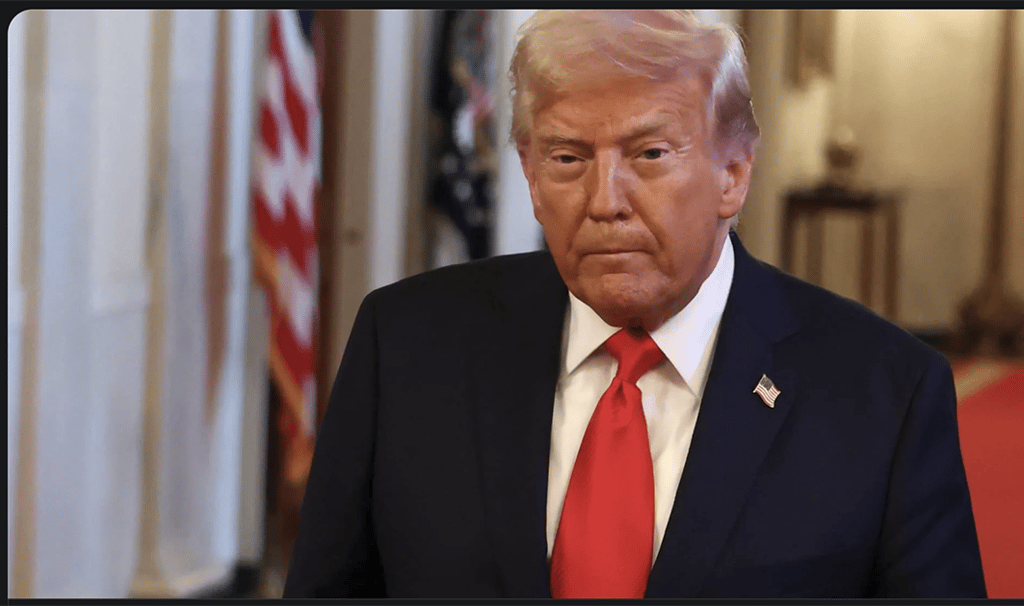Trump’s Economic Approval Plummets: What’s Behind the Numbers?
4/28/20253 min read


Trump’s Economic Approval Plummets: What’s Behind the Numbers?
President Donald Trump has long leaned on his image as a business-savvy leader to bolster his political brand. Yet, a recent CNBC All-America Economic Survey delivers a stark reality check: Trump’s approval rating on the economy has sunk to 43%, the lowest of his presidential career, with 55% of Americans disapproving. This marks the first time a CNBC poll has shown him underwater on this critical issue while in office. So, what’s driving this sharp decline, and what does it mean for his second term? Let’s unpack the numbers and explore the forces at play.
A Fading Economic Halo
When Trump was reelected in 2024, a wave of optimism followed, with many Americans hopeful his policies would ignite economic growth. That enthusiasm has evaporated. The survey, conducted April 9-13, 2025, with 1,000 respondents, reveals growing discontent over Trump’s handling of tariffs, inflation, and government spending. Nearly half (49%) of Americans now believe the economy will worsen over the next year—the most pessimistic outlook since 2023. Stock market sentiment has also soured, with 53% saying it’s a bad time to invest, a dramatic reversal from the optimism seen post-election.
Trump’s economic policies, particularly his sweeping tariffs, are a lightning rod for criticism. The public disapproves of across-the-board tariffs by a 49-35 margin, with majorities believing they harm workers, fuel inflation, and weaken the economy. Democrats (83-point disapproval) and independents (26-point disapproval) are especially skeptical, though even Republicans show tepid support, approving tariffs by a 59-point margin—20 points below their overall approval of Trump. The perception that tariffs drive up costs is hitting hard, especially as inflation remains a sore spot, with 60% disapproving of Trump’s approach to it.
Cracks in the Base
Trump’s Republican base remains loyal, but there are signs of strain. Blue-collar workers, a key demographic in his 2024 victory, still view his economic leadership positively, but their disapproval has spiked by 14 points compared to his first term. Independents, meanwhile, are 23 points more negative than during his first term, and Democrats are a whopping 90 points net negative. This polarization suggests Trump is struggling to broaden his appeal beyond his core supporters.
Jay Campbell, a Democratic pollster with Hart Associates, summed it up bluntly: “Donald Trump was reelected specifically to improve the economy, and so far, people are not liking what they’re seeing.” The survey’s margin of error is +/-3.1%, lending confidence to these findings, but the broader trend is clear: Trump’s economic narrative is losing traction.
A Bright Spot on Immigration
While the economy drags him down, Trump fares better on immigration. His handling of the southern border garners 53% approval, and 52% back his deportation policies. Notably, independents slightly favor deportations, and 22% of Democrats approve of his border security measures—his best cross-party performance. This suggests immigration remains a stronger pillar for Trump, even as economic concerns dominate voter priorities.
Why It Matters
The economy has long been Trump’s calling card, and this dip in approval could have far-reaching implications. With 57% of Americans believing a recession is imminent or already here, economic anxiety is palpable. Yet, the survey shows no clear advantage for Democrats, with congressional preference split nearly evenly (48% for Democrats, 46% for Republicans). This deadlock suggests voters are frustrated but not yet ready to swing the pendulum.
Trump’s challenge is to regain economic trust without alienating his base. His tariff strategy, while appealing to some, risks further eroding confidence if prices continue to rise. Meanwhile, his immigration wins may not be enough to offset economic discontent, especially if voters perceive his priorities as misaligned with their pocketbook concerns.
Looking Ahead
As Trump nears the 100-day mark of his second term, the pressure is on to deliver tangible economic results. The sharp shift in public sentiment underscores the volatility of voter trust in a polarized era. Can Trump pivot to address inflation and tariff concerns without losing his core supporters? Or will economic pessimism define his second term?
What do you think?
Do you believe Trump’s tariff policies are worth the economic trade-offs, or are they doing more harm than good?
How much weight should approval ratings carry in assessing a president’s performance this early in a term?
Can Trump regain economic trust, or is the public’s pessimism here to stay?
Photo Credit: GettyImage
hello@boncopia.com
+13286036419
© 2025. All rights reserved.